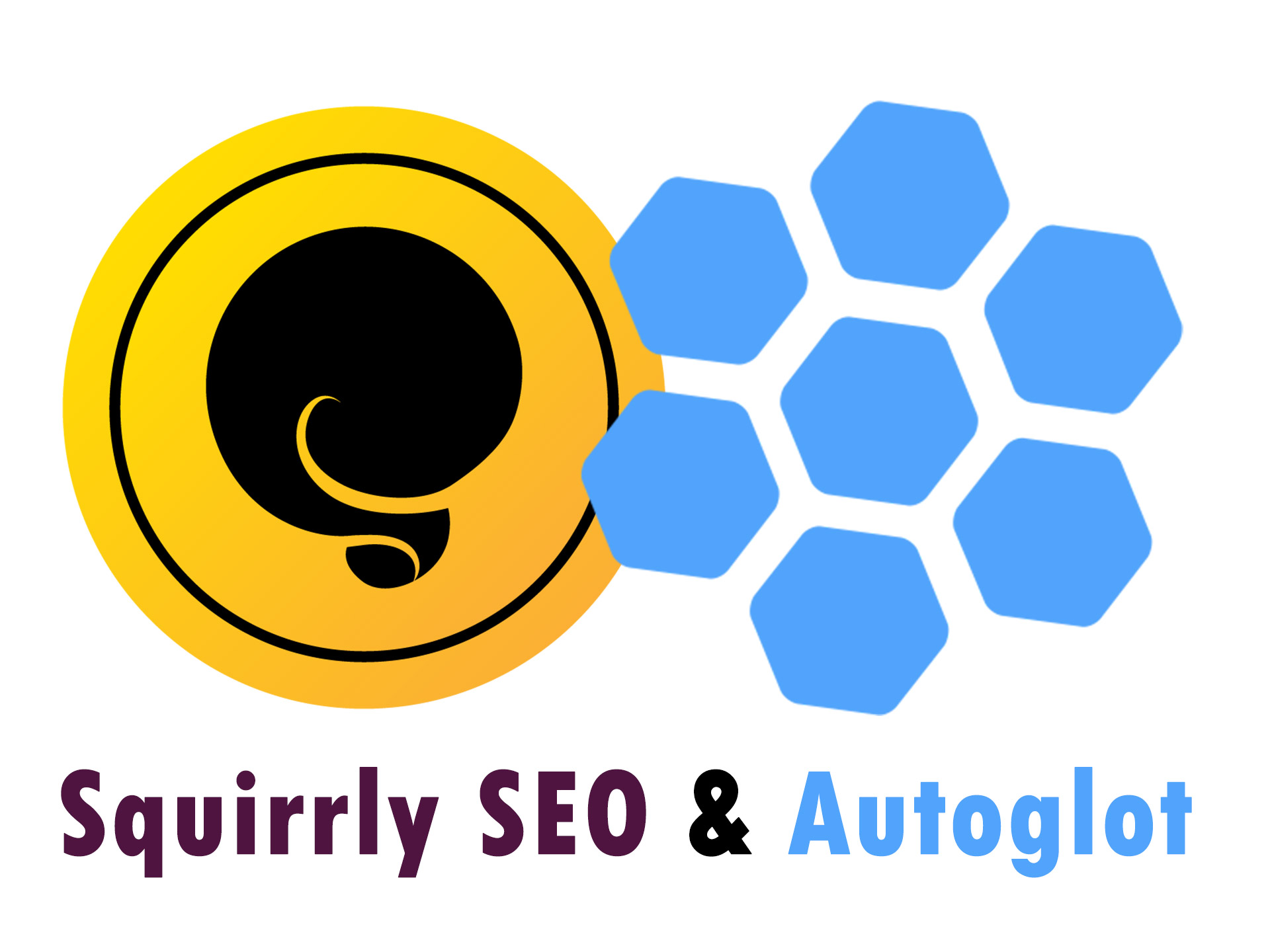
Creating a multilingual website is one of the most effective ways to expand your reach and connect with global audiences. By offering content in multiple languages, you can engage users from diverse regions, boost traffic, and increase conversions. However, to make the most of a multilingual website, it is essential to focus on international SEO, ensuring that your content is optimized for users and search engines in different languages.
Introduction
Squirrly SEO is a popular WordPress plugin designed to simplify SEO tasks and improve website rankings. While it excels in features like keyword optimization, content analysis, and XML sitemap generation, managing multilingual websites with Squirrly SEO requires additional steps to translate and optimize crucial SEO elements like page titles, meta tags, and sitemaps.
This article will guide you through the process of using the Squirrly SEO plugin for international SEO.
- It begins by exploring the benefits of multilingual websites and provides an overview of the plugin’s features, benefits, and limitations.
- You’ll also find step-by-step instructions for setting up Squirrly SEO and learn about the challenges of managing multilingual content manually.
- Finally, we’ll introduce an automated solution with the Autoglot plugin, which simplifies international SEO for multilingual WordPress websites.
Benefits of Multilingual Websites
Expanding Your Global Reach
A multilingual website allows businesses to connect with audiences in different countries and regions. By offering content in multiple languages, companies can cater to diverse cultural and linguistic preferences, making their brand accessible to a broader audience. This inclusivity fosters trust and strengthens customer relationships across various markets.
Driving Increased Traffic
Multilingual websites significantly enhance search engine visibility. When content is translated into different languages, it becomes more likely to rank in localized search results. This leads to increased organic traffic from international users actively searching for products, services, or information in their native language.
Boosting Conversions and Sales
Speaking to customers in their language greatly improves conversion rates. When users can easily understand and engage with your content, they are more likely to take desired actions, such as purchasing products, signing up for newsletters, or contacting your business.
Strengthening Brand Authority
Offering a multilingual website demonstrates professionalism and global ambition. Businesses that provide localized content are perceived as more credible and committed to meeting the needs of diverse customers. This enhances brand reputation and sets businesses apart from competitors with monolingual websites.
Improving SEO Performance
Multilingual websites are a powerful tool for international SEO. Translating key elements like page titles, meta tags, and sitemaps helps search engines properly index and rank your content for users in different languages. This ensures consistent visibility and performance across various markets.
A multilingual website helps businesses reach global audiences, increase traffic, boost conversions, build brand authority, and improve SEO performance.
Source: 5 Reasons a Multi-Language Website is Beneficial for your Business
Overview of the Squirrly SEO Plugin
Key Features of Squirrly SEO
Squirrly SEO is a WordPress plugin designed to optimize websites for search engines using AI-driven tools. It caters to users with varying SEO expertise, offering features that simplify keyword research, content optimization, and performance tracking. The plugin provides real-time SEO audits, actionable insights, and an intuitive interface for managing on-page SEO elements.
Focus Pages help users prioritize critical pages, ensuring they are fully optimized for search engines. The plugin also integrates with Google Analytics and Search Console, allowing users to monitor traffic and rankings seamlessly.
Benefits of Using Squirrly SEO
One of the main benefits of Squirrly SEO is its user-friendly design. It caters to beginners while offering advanced features for professionals. The plugin includes AI-powered suggestions, ensuring users can create SEO-friendly content without requiring technical expertise.
Another advantage is the plugin’s emphasis on real-time optimization. Users receive instant feedback as they write, allowing them to adjust content to meet SEO standards without delays. Additionally, Squirrly SEO’s keyword research tool offers insights tailored to the specific audience, helping websites target relevant search terms effectively.
The built-in XML sitemap generator is a significant feature for managing content indexing. It ensures that search engines can crawl and index pages efficiently, improving the website’s visibility across search engines.
Drawbacks of Squirrly SEO
Despite its benefits, Squirrly SEO may have limitations for multilingual websites. The plugin’s capabilities in managing translated content and sitemaps are not as seamless as other tools specifically designed for international SEO. Manually configuring SEO settings for multiple languages can become cumbersome, especially for websites with extensive content.
Additionally, the advanced features in Squirrly SEO may require a subscription, increasing costs for users managing multilingual websites on a budget.
Squirrly SEO is an AI-driven WordPress plugin offering tools for keyword research, content optimization, and SEO performance tracking. Its user-friendly interface and real-time feedback make it a great choice for many users, though its limitations in managing multilingual content may pose challenges for international SEO.
Source: Squirrly SEO plugin
Installing and Setting Up the Squirrly SEO Plugin
How to Install Squirrly SEO
Installing Squirrly SEO on your WordPress site is straightforward. Follow these steps to get started:
- Log in to your WordPress dashboard.
- Navigate to the “Plugins” section and click on “Add New.”
- In the search bar, type “Squirrly SEO” and press enter.
- Locate the plugin in the results and click the “Install Now” button.
- After installation, click “Activate” to enable the plugin.
Once activated, Squirrly SEO will appear in your WordPress dashboard, ready to be configured.
Initial Setup and Configuration
Setting up Squirrly SEO involves a simple, guided process to ensure optimal functionality. When you first activate the plugin, it will prompt you to run the configuration wizard. This wizard customizes the plugin’s settings based on your website’s needs.
Steps to configure Squirrly SEO:
- Sign in or create an account with Squirrly. This is required to unlock its features and integrate the plugin with your WordPress site.
- Select your website’s goals. The wizard will ask if you want to focus on content creation, keyword optimization, or overall SEO improvement.
- Input target keywords. Enter the primary keywords for your website. Squirrly will use these to provide recommendations and track rankings.
- Configure the XML sitemap. Ensure the sitemap generation feature is enabled to help search engines crawl and index your website.
- Set up tracking integrations. Link your Google Analytics and Search Console accounts to monitor website performance directly from the plugin.
After completing the wizard, Squirrly SEO will analyze your website and offer actionable recommendations to improve your SEO.
Additional Settings
Squirrly SEO also includes advanced settings for more control over SEO elements. These include:
- Customizing meta descriptions and titles for individual pages.
- Setting up focus pages for enhanced ranking efforts.
- Managing social media integrations for better content sharing.
Installing and setting up Squirrly SEO is simple and involves running the configuration wizard to align the plugin with your website’s goals. With options for keyword tracking, sitemap generation, and performance monitoring, Squirrly SEO offers essential tools to boost website visibility.
Source: WordPress SEO Plugin by Squirrly SEO
Importance of International SEO with Squirrly SEO
Why International SEO Matters
International SEO is essential for businesses targeting audiences in different countries and languages. It ensures that your website ranks well on localized search engines, making your content accessible to global users. Optimizing for international SEO involves translating and adapting key elements such as page titles, meta descriptions, and sitemaps to align with the preferences and search behavior of multilingual audiences.
Neglecting international SEO can limit the potential of your multilingual website. Without proper optimization, translated content may not rank effectively, reducing your site’s visibility and impact in foreign markets.
Role of Squirrly SEO in International SEO
Squirrly SEO provides tools that support international SEO efforts. These include:
- Keyword Tracking for Different Markets: Squirrly helps you research and optimize for keywords relevant to specific regions.
- Customizable Meta Tags: The plugin allows you to edit titles and descriptions for each page, which is vital for targeting different languages and regions.
- XML Sitemap Generation: Squirrly generates sitemaps that help search engines index your content efficiently, even for multilingual websites.
Challenges in Multilingual SEO with Squirrly SEO
Managing multilingual SEO manually using Squirrly SEO can be time-consuming and prone to errors. Key challenges include:
- Translating and updating titles and meta descriptions for multiple languages.
- Adding translated pages to XML sitemaps manually.
- Keeping multilingual SEO elements synchronized with changes in the original language content.
For websites with a significant amount of content, these tasks can quickly become unmanageable, affecting the consistency and effectiveness of your international SEO strategy.
Squirrly SEO and Multilingual Sitemaps
Sitemaps play a crucial role in ensuring that search engines index all versions of your multilingual content. Squirrly SEO supports sitemap generation, but manually adding translated pages requires extra effort. This step is critical for ensuring that translated pages appear in search engine results, but it can be tedious without automation.
International SEO ensures that multilingual websites rank effectively in localized search engines, helping businesses reach global audiences. While Squirrly SEO offers tools to support international SEO, managing translations and sitemaps manually can be challenging and time-intensive, highlighting the need for automation.
Source: Multilingual SEO: 5 Best Practices to Remember
Translating Page Titles, Meta Tags, and Sitemaps with Squirrly SEO
Importance of Translating SEO Elements
Translating page titles, meta tags, and sitemaps is essential for optimizing multilingual websites. These elements are critical for search engine visibility and user engagement. A well-translated title or meta tag can improve click-through rates by attracting users in their native language, while an accurate sitemap ensures that all pages are indexed properly for localized search results.
Manual Translation Process in Squirrly SEO
Manually translating page titles, meta tags, and adding translated pages to sitemaps requires significant effort. Here’s an outline of the process:
- Create translated versions of your pages or posts. Use WordPress to duplicate content and translate it manually.
- Edit page titles and meta tags for each language. Open the Squirrly SEO settings for each page and manually update the translated titles and meta descriptions.
- Update the XML sitemap. Manually add the translated pages to the Squirrly SEO sitemap to ensure search engines can index them.
- Repeat the process for updates. If you modify the original content, repeat these steps to synchronize changes across all languages.
While effective, this approach is time-consuming and prone to errors, especially for websites with extensive multilingual content.
Automated Translation with Autoglot Plugin
Using the Autoglot WordPress translation plugin simplifies the process of translating SEO elements in Squirrly SEO. Autoglot automates key tasks, including:
- Translating page titles, meta tags, and descriptions alongside the main content.
- Automatically updating the Squirrly SEO XML sitemap with translated pages, posts, categories, and tags.
- Keeping translated SEO elements synchronized with changes in the original content.
Autoglot integrates seamlessly with Squirrly SEO to make international SEO effortless. The plugin ensures that all translations are accurate and optimized for search engines, reducing the need for manual work and improving the consistency of your multilingual SEO strategy.
Benefits of Automation
Automating the translation process saves time and ensures accuracy. It eliminates the need for repetitive manual tasks, reduces errors, and allows website owners to focus on other important aspects of their business.
Translating SEO elements like page titles, meta tags, and sitemaps is vital for international SEO success. While Squirrly SEO supports manual translation, integrating it with the Autoglot plugin automates and streamlines the process, making it more efficient and reliable for managing multilingual websites.
Read more: How to Automate Translation Process for WordPress?
Using Autoglot Plugin to Enhance International SEO
How Autoglot Works with Squirrly SEO
Autoglot simplifies the complexities of managing multilingual SEO by automating key processes. It integrates seamlessly with Squirrly SEO, offering a complete solution for translating content and optimizing SEO elements. By automating translations for titles, meta descriptions, and sitemaps, Autoglot eliminates the need for repetitive manual tasks.
Key features of Autoglot include:
- Automatic Content Translation: Translates the main page content, including titles and meta tags.
- Sitemap Integration: Automatically adds translated posts, pages, categories, and tags to Squirrly SEO XML sitemaps.
- Real-Time Synchronization: Updates translated content whenever changes occur in the original language, ensuring consistency.
- SEO Optimization: Keeps translated elements optimized for search engines in the target language.
Benefits of Using Autoglot
Autoglot enhances international SEO efforts by providing numerous advantages:
- Time Savings: Automates the translation and SEO update processes, reducing the time spent on manual tasks.
- Consistency: Ensures that all multilingual content remains synchronized with the original, maintaining accuracy.
- Improved Search Rankings: Translated SEO elements help achieve better visibility on localized search engines.
- Ease of Use: Designed for seamless integration with WordPress and Squirrly SEO, requiring minimal setup.
Steps to Use Autoglot with Squirrly SEO
Setting up Autoglot with Squirrly SEO is straightforward:
- Install the Autoglot Plugin: Download and activate it through the WordPress dashboard.
- Configure Language Settings: Select the languages for translation in the Autoglot settings.
- Integrate with Squirrly SEO: Autoglot will automatically detect and translate titles, meta tags, and sitemaps generated by Squirrly SEO.
- Review and Edit: Review the translations and modify them if needed.
Why Choose Autoglot for Multilingual Websites?
Autoglot is ideal for website owners who want an efficient, scalable solution for managing multilingual SEO. By automating translation tasks, it allows users to focus on other critical aspects of their business. Its compatibility with Squirrly SEO ensures a cohesive experience for managing international SEO.
Autoglot transforms the process of managing multilingual SEO with its automation capabilities. By integrating with Squirrly SEO, it eliminates manual translation tasks, ensures consistency, and enhances global visibility, making it a must-have for website owners targeting international audiences.
Read more: How To Set Up Translation Plugin On WordPress?
Conclusion: Streamlining Multilingual SEO with Automation
Key Takeaways
Effective multilingual SEO is crucial for reaching global audiences and maximizing website traffic. Properly translating page content, titles, meta tags, and sitemaps ensures better visibility on search engines and a more engaging experience for users in their native language. While tools like Squirrly SEO provide a strong foundation, the complexities of managing multilingual websites can overwhelm users relying solely on manual processes.
Challenges of Manual Processes
Manual translation of multilingual SEO elements is time-consuming and prone to errors. Tasks such as updating page titles, meta descriptions, and XML sitemaps for each language require significant effort, especially for large or frequently updated websites. Furthermore, maintaining consistency across all languages becomes increasingly difficult as the number of pages grows.
The Autoglot Advantage
Autoglot offers a powerful solution by automating multilingual SEO tasks. Key benefits include:
- Seamless integration with Squirrly SEO, ensuring all translated content aligns with SEO best practices.
- Automation of translations for titles, meta tags, and sitemaps, saving time and effort.
- Real-time synchronization to keep translations up-to-date with changes in the original language.
- Enhanced search engine rankings by ensuring all localized content is indexed correctly.
Autoglot eliminates the repetitive work associated with manual processes, providing a scalable and efficient approach for website owners.
Why Automation Matters for International SEO
Automating multilingual SEO ensures accuracy, efficiency, and scalability. By leveraging tools like Autoglot, website owners can focus on creating high-quality content while ensuring that their website performs well in multiple languages. This not only improves search engine rankings but also enhances user satisfaction and engagement.
Final Thoughts
Choosing the right approach for managing multilingual SEO depends on the size and needs of your website. Manual processes may work for small websites with limited content, but they quickly become impractical as your site grows. For most website owners, integrating Autoglot with Squirrly SEO provides the best combination of ease, efficiency, and performance.
Automating multilingual SEO with tools like Autoglot ensures consistent, accurate, and efficient management of translated content. By streamlining tasks and integrating with Squirrly SEO, Autoglot empowers website owners to reach global audiences and achieve international success.



